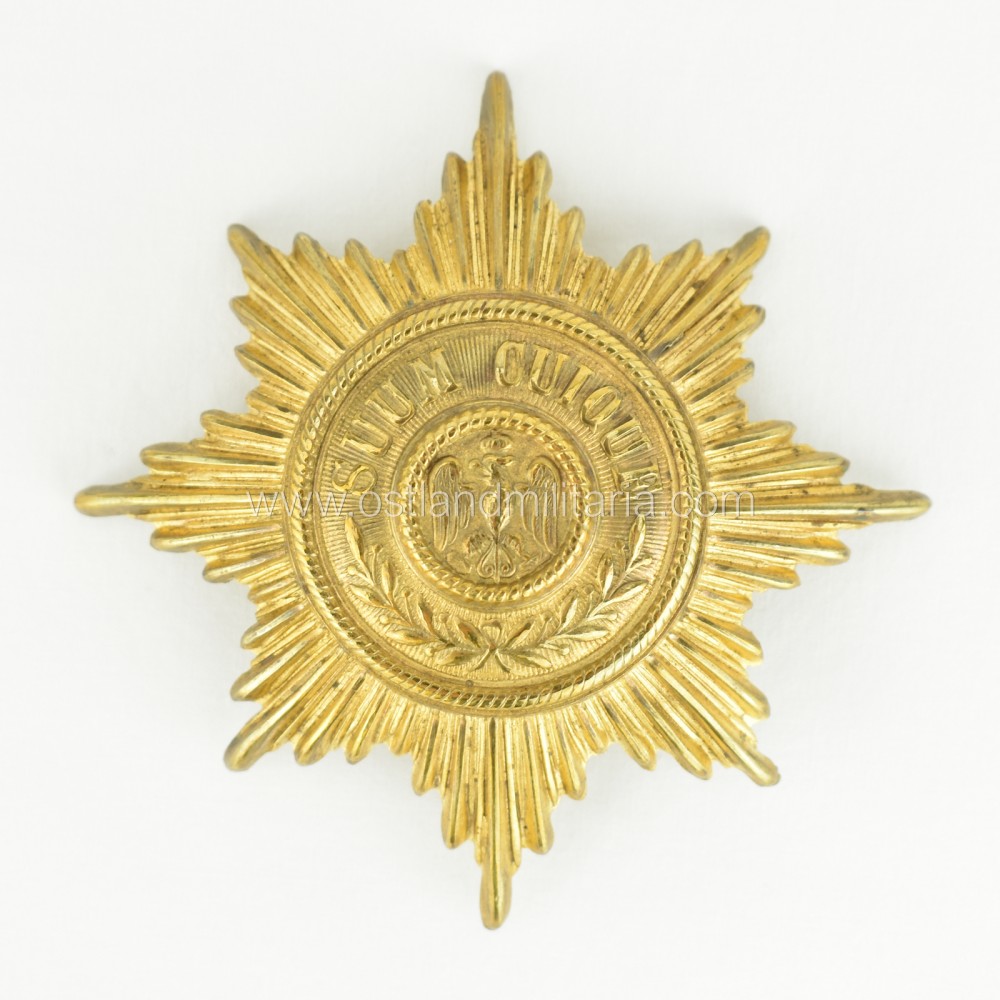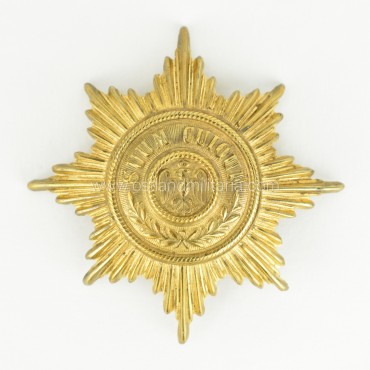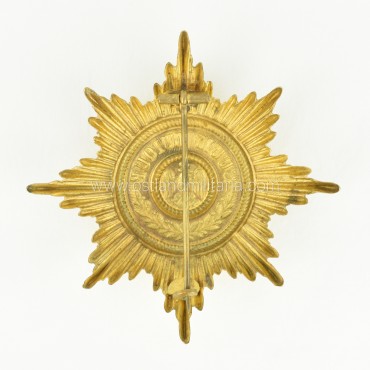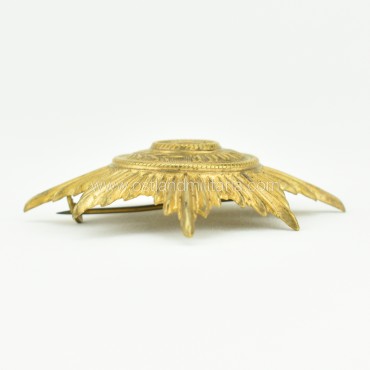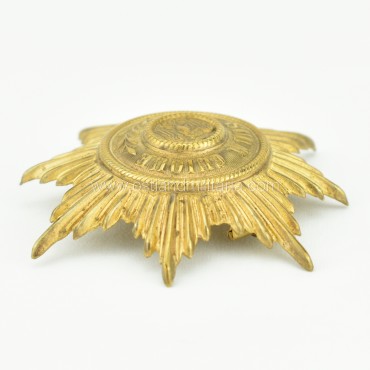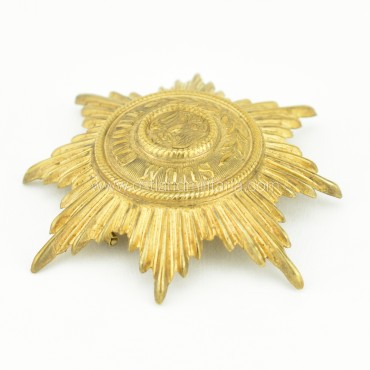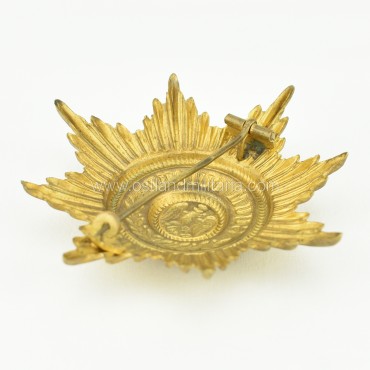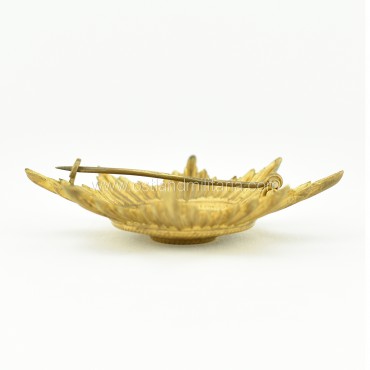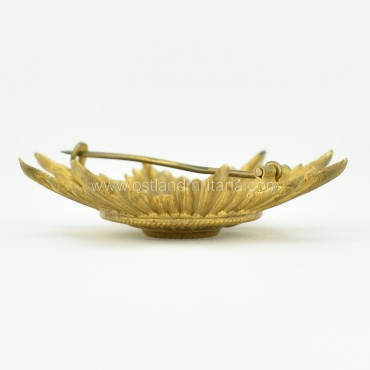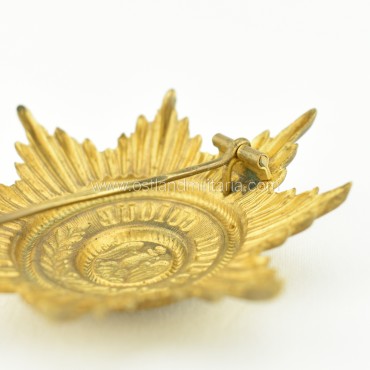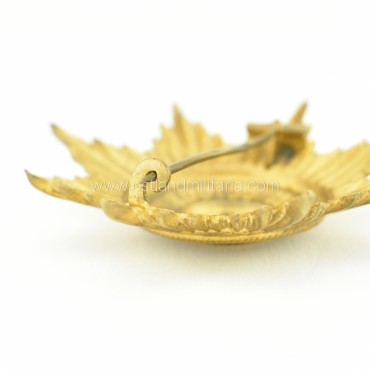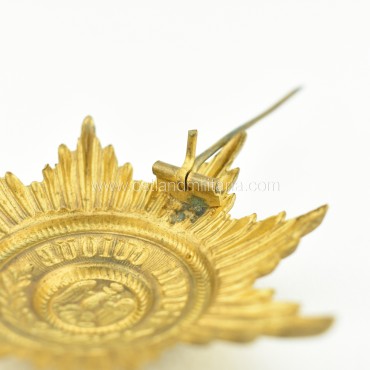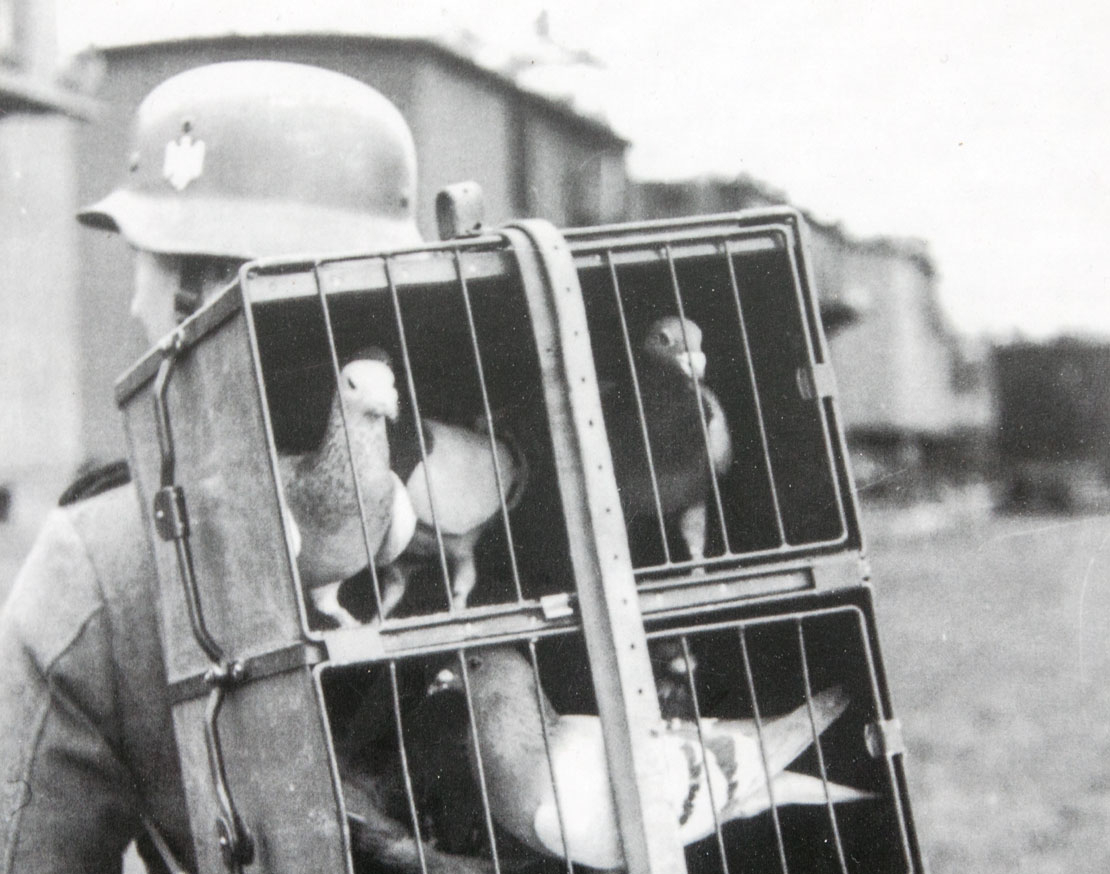
Returning Customer
I am a returning customer
Login or create an account
CloseIf you already have an account with us, please login at the login form.
Your Account Has Been Created!
Thank you for registering with Ostland militaria!
You will be notified by e-mail once your account has been activated by the store owner.
If you have ANY questions about the operation of this online shop, please contact the store owner.
Account Logout
You have been logged off your account. It is now safe to leave the computer.
Your shopping cart has been saved, the items inside it will be restored whenever you log back into your account.
Star of Malplaquet of Freikorps von Diebitsch without swords.
A curved eight-pointed star made of gilded brass die-stamped in one piece from a metal sheet with soldered on set up on the back.
Produced by Paul Meybauer, Militär-Effekten und Orden Fabrik, Berlin.
Excellent condition. Super rare, only a few pieces out of approx. a few hundred produced are known to have survived.
Instituted on March 27, 1919, by order 1a Nr. 1804/19 in Suwalki (now Suwałki, Poland) signed by Oberstleuntant Karl Heinrich von Diebitsch. Upon the suggestion of the unit commander, eligible to be awarded were soldiers that served in the unit or one of the subunits of the Suwalki District Command for no less than 2 months and distinguished themselves in the service and in the face of the enemy. Funds for the purchase of the stars (both classes), however, were not available (the variant without swords cost 2,50 marks and an improved variant with swords cost 30 marks). The recipients of the award were to agree to bear the costs of acquiring the award on their own unless the units have funds allocated for the purpose.
In 1919, by the order of the Generalkommando Landwehrkorps, Suwalki District Command was to be renamed Freikorps von Diebitsch. Oberstleuntant Karl Heinrich von Diebitsch was assigned as the commander of the unit. The main task of the unit was ensuring the safety of the railway line heading to Courland, which played a vital role for German troops, stationed there ever since the First World War. Also, after a German-Polish treaty on the transfer of the territory of the Grodno province by the Germans to Polish troops on April 5, 1919, the Freikorps von Diebitsch became responsible for the protection of the German border up to Golynka (now Halynka, Belarus), and later to the south up to Merecz (now Merkinė, Lithuania). In September 1919, the area of the Radzivilishki (now Radviliškis) railway junction, entered into heavy fighting with the Lithuanian army, was subsequently surrounded and on the verge of complete destruction. In early October 1919, Freikorps von Diebitsch became a part of the West Russian Volunteer Army (Russian: Западная добровольческая армия), an anti-Soviet pro-German military unit, also known as Bermontians. As a part of the West Russian Volunteer Army took part in the unsuccessful offensive on Riga, after which retreated to East Prussia, where was disbanded.


